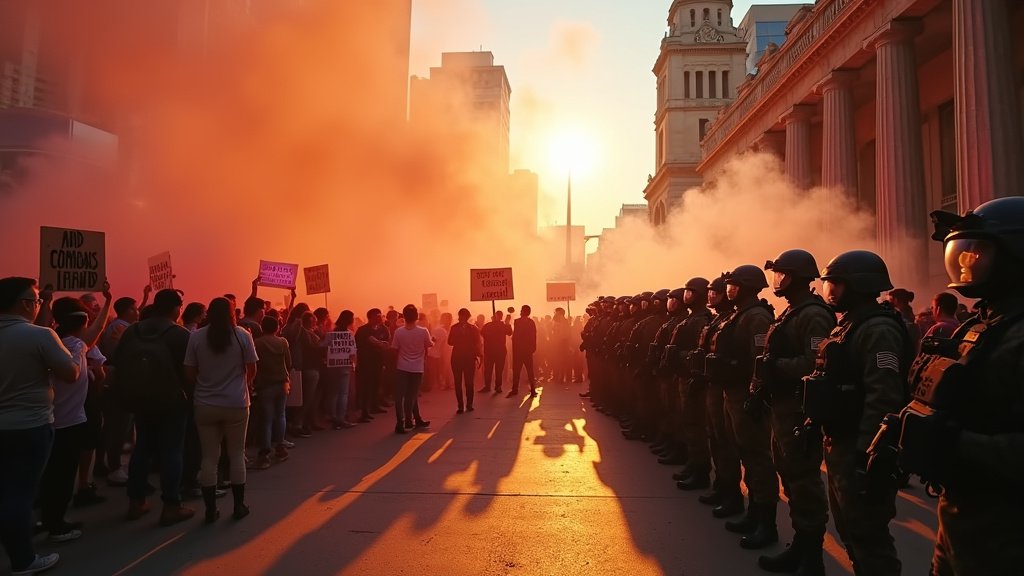National Guard Deployed in Los Angeles Amidst Immigration-Related Protests
Los Angeles, CA – U.S. President Donald Trump has authorized the deployment of 2,000 National Guard troops to Los Angeles, California, in response to escalating protests concerning immigration policies and actions taken by federal authorities. The deployment, reported on June 8, 2025, marks a significant escalation of federal involvement in local affairs and has sparked a heated debate regarding the role of the military in managing domestic unrest.
The protests, concentrated throughout Southern California, are primarily a reaction to Trump’s stringent measures regarding illegal immigration, particularly the activities of Immigration and Customs Enforcement (ICE). These actions have included increased deportations and stricter enforcement policies targeting undocumented immigrants. Demonstrations have been ongoing for weeks, with protestors voicing their concerns about family separations, alleged abuses of power, and the broader impact of these policies on immigrant communities.
Roots of the Protest
The current wave of protests is rooted in growing discontent over the Trump administration’s immigration policies. ICE’s intensified efforts in Southern California have fueled the unrest, with many individuals and organizations arguing that the agency’s tactics are overly aggressive and detrimental to families and communities. The protestors’ demonstrations include marches, rallies, and civil disobedience actions. These actions aimed to disrupt daily life and bring attention to the plight of those affected by the policies. Social media has played a critical role in organizing and amplifying these protests, with activists using online platforms to coordinate events, share information, and build support.
Controversy and Concerns
The decision to deploy the National Guard has drawn sharp criticism from a wide range of political figures, civil rights advocates, and legal experts. Many critics contend that the situation should be handled by local law enforcement agencies rather than the military, arguing that the use of National Guard troops represents an overreach of federal authority and could potentially exacerbate tensions.
Legal scholars have also weighed in on the constitutional implications of the deployment, raising questions about the Posse Comitatus Act, which generally restricts the use of federal troops for domestic law enforcement purposes. The precise scope of the National Guard’s involvement remains unclear, though the deployment has undoubtedly introduced military presence onto the streets of Los Angeles.
Impact and Future
The deployment of the National Guard has already begun to affect the dynamics of the protests. While the full impact of the troop deployment is yet to be seen, the presence of military personnel on the streets could influence the nature and trajectory of the protests. The move has led to increased media coverage and amplified the political debate surrounding immigration policies. Questions about the long-term ramifications for American democracy are being raised.
The situation in Los Angeles is dynamic, with the potential for further developments. Continued protests, changing political dynamics, and the reaction of local authorities will all shape the future of this story. The President’s decision to deploy the National Guard signals a strong stance on immigration enforcement, setting the stage for what could be a prolonged and divisive period for the nation.

